-
 bitcoin
bitcoin $87959.907984 USD
1.34% -
 ethereum
ethereum $2920.497338 USD
3.04% -
 tether
tether $0.999775 USD
0.00% -
 xrp
xrp $2.237324 USD
8.12% -
 bnb
bnb $860.243768 USD
0.90% -
 solana
solana $138.089498 USD
5.43% -
 usd-coin
usd-coin $0.999807 USD
0.01% -
 tron
tron $0.272801 USD
-1.53% -
 dogecoin
dogecoin $0.150904 USD
2.96% -
 cardano
cardano $0.421635 USD
1.97% -
 hyperliquid
hyperliquid $32.152445 USD
2.23% -
 bitcoin-cash
bitcoin-cash $533.301069 USD
-1.94% -
 chainlink
chainlink $12.953417 USD
2.68% -
 unus-sed-leo
unus-sed-leo $9.535951 USD
0.73% -
 zcash
zcash $521.483386 USD
-2.87%
What is the "mining" process of Bitcoin?
Bitcoin mining involves solving complex mathematical puzzles with specialized hardware (ASICs) to verify transactions and add new blocks to the blockchain, offering rewards in the form of Bitcoin but also posing challenges like high hardware costs and electricity consumption.
Feb 21, 2025 at 02:36 am
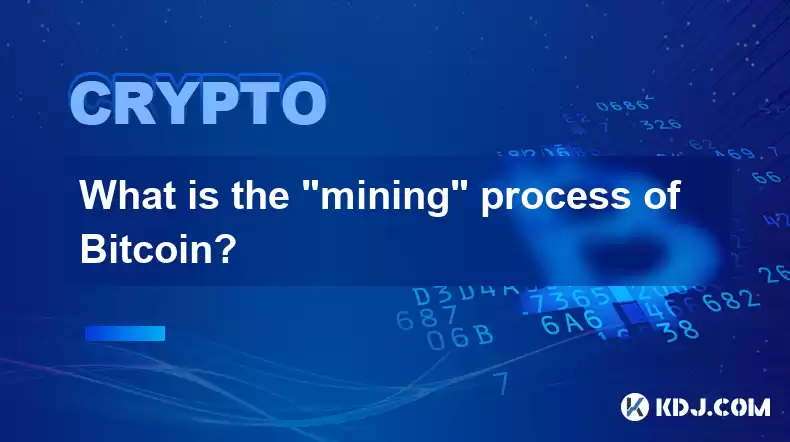
- Understanding the concept of Bitcoin mining
- Detailed overview of the mining hardware and software requirements
- Step-by-step guide to setting up a Bitcoin mining operation
- Explanation of the mining process, including block generation and verification
- Discussing the rewards and challenges of Bitcoin mining
Bitcoin mining is the process of verifying and adding new transaction records to the Bitcoin blockchain. Miners use specialized computers to solve complex mathematical puzzles, and the first miner to solve the puzzle receives a block reward in the form of Bitcoin. This process ensures the security and integrity of the Bitcoin network.
Step 2: Mining Hardware and Software RequirementsBitcoin mining requires specialized hardware known as ASICs (Application-Specific Integrated Circuits). ASICs are designed specifically for Bitcoin mining and offer significantly higher hash rates compared to general-purpose CPUs or GPUs. Additionally, miners need mining software that connects to the Bitcoin network and manages the mining process.
Step 3: Setting Up a Bitcoin Mining OperationSetting up a Bitcoin mining operation involves procuring ASICs, configuring mining software, and connecting to a mining pool. Mining pools are groups of miners who combine their computational power to increase their chances of finding blocks. Once the mining hardware and software are set up, miners can start the mining process.
Step 4: The Mining ProcessThe Bitcoin mining process involves solving complex mathematical algorithms to generate a hash. The correct hash meets specific criteria set by the Bitcoin network. When a miner successfully generates a valid hash, they create a new block and add it to the blockchain. The block contains a timestamp, transaction data, and the previous block's hash.
Step 5: Block Verification and RewardOnce a new block is created, it is broadcast to the Bitcoin network for verification by other nodes. If the block is valid, it is added to the blockchain, and the miner who created the block receives a block reward in the form of Bitcoin. The block reward is currently 6.25 Bitcoin, which is halved approximately every four years.
Rewards and Challenges of Bitcoin MiningBitcoin mining offers the potential for significant financial rewards, as miners receive Bitcoin for successfully verifying blocks. However, Bitcoin mining also poses challenges, such as:
- High hardware costs: ASICs are expensive to purchase and maintain.
- Rising electricity consumption: Bitcoin mining consumes a significant amount of electricity.
- Increasing competition: The Bitcoin mining market is highly competitive, with a large number of miners vying for block rewards.
Currently, the block reward is 6.25 Bitcoin.
How often is the block reward halved?Approximately every four years.
What are the challenges of Bitcoin mining?High hardware costs, rising electricity consumption, and increasing competition.
What are the requirements for Bitcoin mining?ASICs, mining software, and connection to a mining pool.
Disclaimer:info@kdj.com
The information provided is not trading advice. kdj.com does not assume any responsibility for any investments made based on the information provided in this article. Cryptocurrencies are highly volatile and it is highly recommended that you invest with caution after thorough research!
If you believe that the content used on this website infringes your copyright, please contact us immediately (info@kdj.com) and we will delete it promptly.
- Bitcoin's Double-Edged Sword: Navigating FOMO, Opportunity, and the Trap
- 2026-02-11 15:55:01
- ASTER Price Prediction: Rally Possible as Bullish Momentum Builds, But Gotham's Ghost Lurks
- 2026-02-11 15:50:01
- Electronic Prescriptions Revolutionize Healthcare: newsGP Embraces E-Prescribing Trend
- 2026-02-11 15:50:01
- Neo N3 Unleashes Dev Power: New Solidity Compiler Bridges Ethereum Talent to its Blockchain
- 2026-02-11 15:45:02
- Maximizing Crypto Mining Rewards: The Crucial Role of Software in 2026
- 2026-02-11 13:15:01
- Bitcoin Chart Analysis: Navigating the Bear Market Amidst Shifting Technicals and Whale Activity
- 2026-02-11 13:10:02
Related knowledge
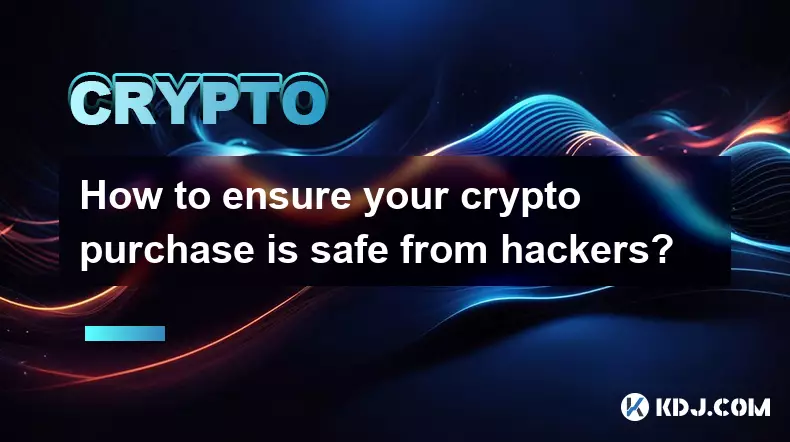
How to ensure your crypto purchase is safe from hackers?
Jan 28,2026 at 11:19pm
Secure Wallet Selection1. Choose hardware wallets for long-term holdings—devices like Ledger and Trezor isolate private keys from internet-connected s...
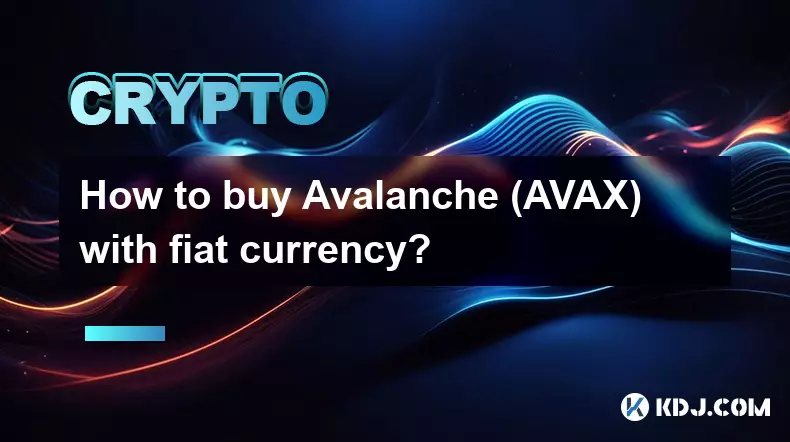
How to buy Avalanche (AVAX) with fiat currency?
Jan 29,2026 at 12:40pm
Choosing a Reliable Exchange Platform1. Identify exchanges licensed in your jurisdiction that support AVAX trading pairs with major fiat currencies li...
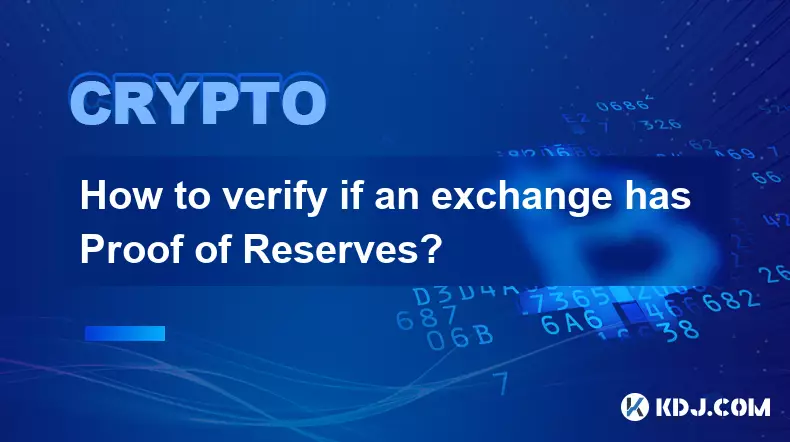
How to verify if an exchange has Proof of Reserves?
Jan 30,2026 at 06:39am
Understanding Proof of Reserves1. Proof of Reserves (PoR) is a cryptographic audit mechanism that demonstrates an exchange holds sufficient on-chain a...
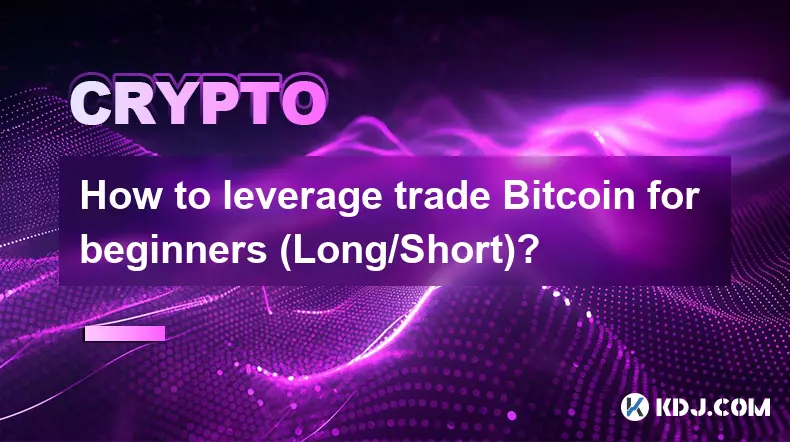
How to leverage trade Bitcoin for beginners (Long/Short)?
Jan 29,2026 at 03:19pm
Understanding Bitcoin Price Movements1. Bitcoin’s price is heavily influenced by macroeconomic indicators such as interest rate decisions, inflation d...
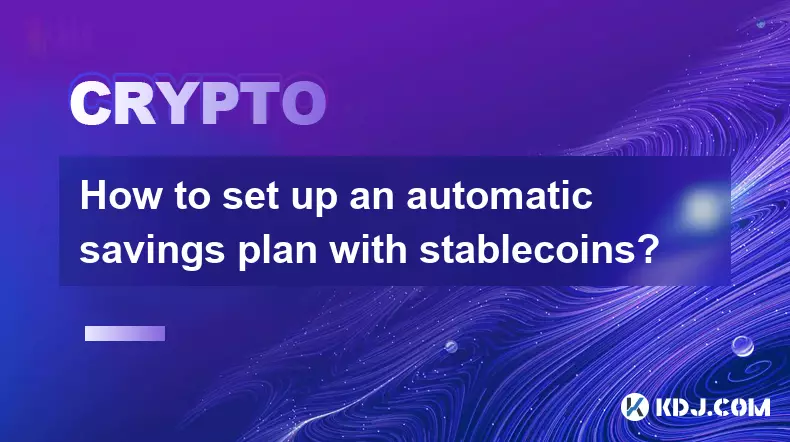
How to set up an automatic savings plan with stablecoins?
Jan 29,2026 at 06:39am
Understanding Stablecoin Savings Mechanics1. Stablecoins are digital assets pegged to fiat currencies like the US dollar, designed to minimize volatil...
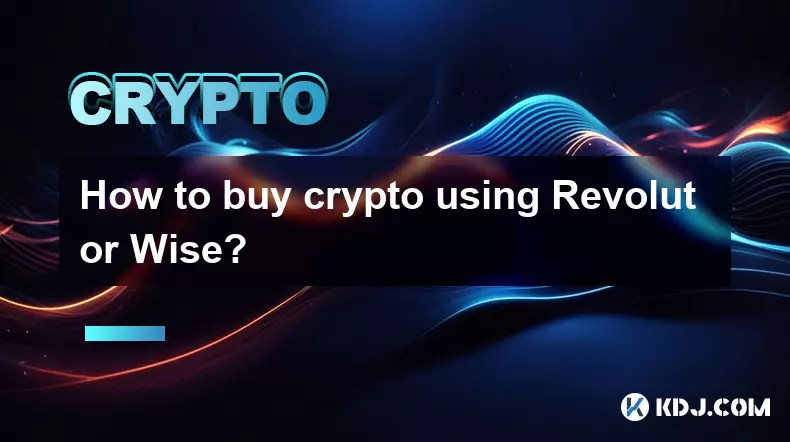
How to buy crypto using Revolut or Wise?
Jan 28,2026 at 11:00pm
Setting Up Your Revolut Account for Crypto Purchases1. Download the Revolut app and complete identity verification using government-issued ID and a se...

How to ensure your crypto purchase is safe from hackers?
Jan 28,2026 at 11:19pm
Secure Wallet Selection1. Choose hardware wallets for long-term holdings—devices like Ledger and Trezor isolate private keys from internet-connected s...

How to buy Avalanche (AVAX) with fiat currency?
Jan 29,2026 at 12:40pm
Choosing a Reliable Exchange Platform1. Identify exchanges licensed in your jurisdiction that support AVAX trading pairs with major fiat currencies li...

How to verify if an exchange has Proof of Reserves?
Jan 30,2026 at 06:39am
Understanding Proof of Reserves1. Proof of Reserves (PoR) is a cryptographic audit mechanism that demonstrates an exchange holds sufficient on-chain a...

How to leverage trade Bitcoin for beginners (Long/Short)?
Jan 29,2026 at 03:19pm
Understanding Bitcoin Price Movements1. Bitcoin’s price is heavily influenced by macroeconomic indicators such as interest rate decisions, inflation d...

How to set up an automatic savings plan with stablecoins?
Jan 29,2026 at 06:39am
Understanding Stablecoin Savings Mechanics1. Stablecoins are digital assets pegged to fiat currencies like the US dollar, designed to minimize volatil...

How to buy crypto using Revolut or Wise?
Jan 28,2026 at 11:00pm
Setting Up Your Revolut Account for Crypto Purchases1. Download the Revolut app and complete identity verification using government-issued ID and a se...
See all articles










































































